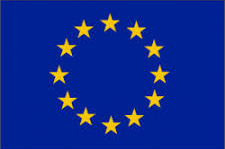
Founding countries: France, Germany, Italy, Belgium, The Netherlands and Luxembourg
1951: European Steel & Coal Community
1957: European Economic Community (“Common Market”)
Freedom of movement for people, goods, services and capital
Free and non distorted competition (no dominant positions, no cartels, no state aid)
1962: Common Agricultural Policy
1968: Customs Union
1973: Enlargement to United Kingdom, Ireland and Denmark
1974: Regional Policy
1981: Enlargement to Greece
1985: Schengen Area
1986: Single Market (open in 1993)
1986: Enlargement to Spain and Portugal
1990: Schengen Area enlarged
1992: European Union
New competences of the EU regarding social affairs, the environment, consumer protection, Trans-European networks, health, research…
European Parliament’s new decision-making powers
Common Foreign Affairs & Security Policy
European Citizenship
1995: Enlargement to Finland, Sweden and Austria
1997: European Area for Freedom, Security & Justice
1999: Economic & Monetary Union (EMU)
1999: Rural Development Policy
2001: Charter of Fundamental Rights (binding in 2007)
2004: Enlargement to Poland, Czechia, Slovakia, Hungary, Slovenia, Estonia, Latvia, Lithuania, Cyprus, and Malta
2007: Enlargement to Romania and Bulgaria
2007: Co decision is the ordinary legislative procedure
2007: New comitology – Implementing Acts, Delegated Acts
2007: European Citizens’ Initiatives
2008: Transparency Register of representatives of interests
2011: European External Action Service
2012: Stability, Coordination and Governance of the Economic & Monetary Union
2013: Enlargement to Croatia
2017: Defence Union
2020 : The United Kingdom leaves
